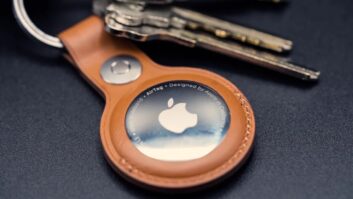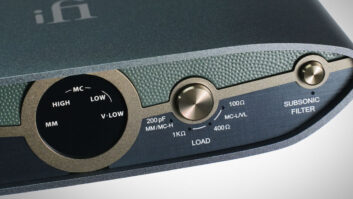Chicago – An Illinois state court has allowed six current and former owner/operators of Bang & Olufsen-branded stores to sue Bang & Olufsen America (BOA) on charges of fraud, breach of contract, and violation of federal and state franchise regulations.
On June 11, the Circuit Court of Cook County, Ill., will schedule a trial date and rule on plaintiffs’ plan to amend the suit to include fraud charges against former BOA president Ole Bek, who resigned in April to operate his own B&O stores. The court previously dismissed charges against Bek, but allowed the plaintiffs to file amended charges. The court also denied the plaintiffs’ right to sue BOA’s parent in Denmark.
Kim Bo Hansen, global counsel for BOA’s Denmark parent, declined to discuss the complaints in detail, but said, ‘We have not tried to settle this case because we think we will win.’ He also said he believes it’s the first time any B&O store operator has sued the company.
Plaintiff Mark Berggren, who converted his B&O store in Chicago into Metropolitan Music & Cinema, said the suit charges Arlington Heights, Ill.-based BOA with:
- misrepresenting the sales of other B&O stores to entice the plaintiffs into becoming owner/operators;
- requiring owner/operators to make ‘excessive’ purchases of display product to inflate BOA’s sales and to pay other ‘excessive and unreasonable fees’;
- and not providing promised support, including training, advice, promotional materials and advertising.
The six plaintiffs separately owned or continue to own six B&O stores out of almost 60 in the United States. The stores are the exclusive outlets for B&O-branded A/V products. Some of the stores, including the plaintiffs’ stores, are owned by individual owner/operators. Some are owned directly by B&O or in partnership with B&O.
The six seek compensation for their lost investments (about $500,000 each), liability for rent under the terms of their leases, forgiveness of debt owed to BOA, and unspecified damages, Berggren said.
According to the suit, ‘BOA deceived them [plaintiffs] by grossly misrepresenting the nature of its retail program and the past financial performance of similar stores.’
BOA, the suit said, provided the six operators with financial projections ‘based on an allegedly existing track record [of] at least 12 other stores. [BOA] intended for plaintiffs and other prospective owner/operators to believe that the 12 stores were comparable in all important respects and that there was a reasonable, historical basis for these projections.’ The plaintiffs, however, ‘were deceived by BOA’s manipulation of data from the 12 previously owned stores,’ the complaint alleges.
BOA, Berggren added, selected leading, well-entrenched stores for its projections and ignored stores that failed. In addition, ‘no one knew’ that non-B&O products ‘accounted for a large portion of projected store sales,’ he told TWICE. In some cases, non-B&O products accounted for 60 percent to 80 percent of some stores’ revenues, especially when high-priced non-B&O plasma TVs are factored in, he claimed. About two years ago, B&O allowed B&O stores to offer other-brand products that didn’t compete with B&O-brand products, he noted.
In another allegation, the suit contends that ‘BOA subjected the corporate plaintiffs to myriad excessive charges and coerced them into making purchases that they would not have made absent compulsion, and which were not reasonable under the circumstances.’ Berggren explained that BOA ‘was drowning its dealers in products’ to ‘artificially boost its sales.’
In the first few months of operation, for example, owner/operators were required to buy five display models of the same SKU to display the SKU with five different color speaker grilles. In another example, he said he was required to display an $8,500 B&O TV in the front window for one month, then replace it with three Beosound 9000 music systems, bringing the number of Beosound 9000 systems on display to five, ‘all in the same color,’ he said. These specific requirements were never spelled out in advance, he said.
In a third allegation, the suit contends that BOA didn’t provide services and materials in a ‘commercially reasonable and advantageous manner’ under the express terms of its dealer agreements. Those items included administrative, marketing and management support; promotional materials, training courses, and regular consultation and advice, among other things.
Berggren pointed out that BOA promised, but never delivered, ‘a huge campaign of local and national advertising,’ including billboards, local magazines and newspapers. BOA did offer each dealer a coop fund consisting of 2 percent to 3.5 percent of a particular dealer’s purchases, but BOA didn’t spell out that a dealer’s fund would expire if it weren’t used within six months, he said.
The other owner/operators in the suit operated stores in Austin, Texas; Denver; Indianapolis; Portland, Ore.; and Seattle. Most of them have closed their stores.













